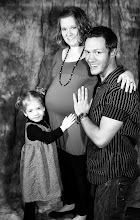Being a new mommy is tough. Along with the highs of bringing a new life into the world and watching it grow before your eyes, there are a lot of lows, such as sleepless nights and hours spent worrying about your baby’s health. The good news is that it’s all worth it in the end, and there are some simple hygiene practices that you can employ to cut your newborn’s risk of getting sick, leaving you with one less thing to worry about. Here are the most vital:
Bathing
It is perfectly safe to bathe your baby most days, although you do not have to do it quite so frequently if your child is not a fan of the bathtub. When giving a bath to a new baby, ideally you should use a baby-specific bathtub, like the models at www.bathingyourbaby.com. You should also use a soap formulated especially for babies, as they need something gentler. You should take care to ensure that water does not find its way into your baby’s eyes, ears, mouth or nose, and you should thoroughly dry the child with baby towels.
Regular bathing will help to get rid of germs and microbes that could cause mild illness in your newborn.
Keeping the Umbilical Cord Clean
Until what is left of the umbilical cords comes away, it is important to keep it clean in order to stop infection. Use either alcohol or a baby-friendly soap to gently clean the cord each day, and when it finally falls off, take a trip to your doctor and ask for some anti-bacterial powder to treat the area until it heals.
Clean Clothes
Newborn babies expel a lot of bodily fluids throughout the course of the day, so it is vitally important that baby clothes are washed each day using a good antibacterial detergent, that is mild enough for delicate baby skin.
When drying clothes, if possible, you should not hang them outdoors as they could pick up pollen spores that could irritate your baby. For a similar reason, you should store baby’s clothes inside a closed cupboards, which will keep them dust-free.
Cutting Nails
Baby’s nails tend to grow quite rapidly, and they can be fairly sharp, so they will need to be carefully trimmed so that baby does not injure him or herself with them. It is easier to trim nails when the baby is asleep to avoid any distress that the process may cause.
Washing Your Hands
Anyone who is going to handle your baby, including you, should first wash their hands. Babies can easily pick up infections, so if a person with unclean hands touches them, there is a good chance they will get sick. Always have a good handwash on hand and do not be afraid to tell visitors to wash up before they come into contact with the baby, after all, you are responsible for your child’s safety, and most people will not be at all offended by the request.
If, despite your best efforts, your baby shows signs of illness, do not hesitate to get in touch with a medical professional who is the only person qualified to give you medical advice regarding your child!

Comments